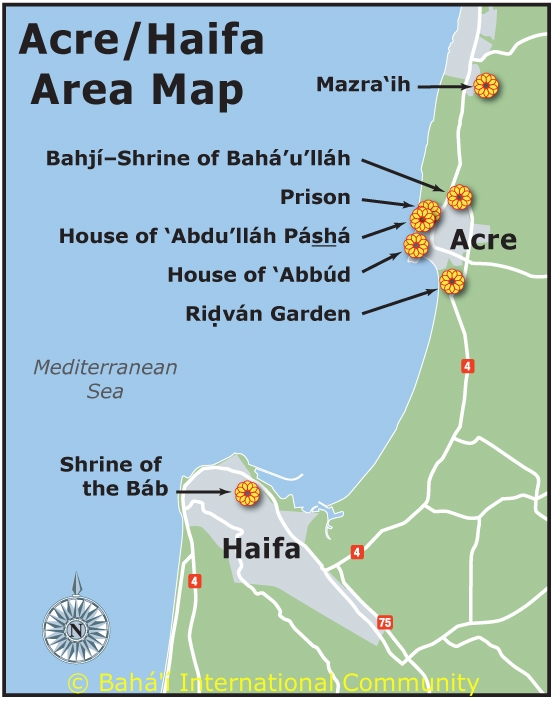Embarking on a pilgrimage is a profound undertaking, particularly for those devoted to the Bahá’í Faith. It is an opportunity not merely for physical travel, but also a spiritual journey steeped in reflection and prayer. As you approach your own pilgrimage, what do you envision praying for? In a world rife with tumult and uncertainty, the act of prayer becomes an anchor, allowing the seeker to navigate the tumultuous waters of existence. Yet, herein lies a compelling challenge: how does one distill the myriad of desires and needs into focused supplication during such a pivotal moment?
At the heart of Bahá’í teachings is the understanding that prayer serves multiple purposes. It is a bridge between the self and the Divine, a tool for healing, and a mechanism for invoking guidance. The Bahá’í writings emphasize the transformative power of prayer. Shoghi Effendi aptly remarked that prayer is “the greatest means for the development of our souls”. Thus, when preparing for pilgrimage, it is imperative to engage deeply with one’s aspirations. This preparation allows for meaningful reflection on both personal and communal needs.
Firstly, it is essential to ponder the personal challenges one faces. The essence of pilgrimage is not merely to visit sacred sites, but to engage in introspection. This phase of contemplation allows pilgrims to identify specific qualities or virtues they wish to cultivate. In that introspective space, the question emerges: Do I need courage, wisdom, or compassion as I navigate my life? Each quality can inspire unique prayers. For instance, a fervent plea for courage might be accompanied by a resolute commitment to act in the face of fear.
Furthermore, the pilgrimage presents an unparalleled opportunity to seek prayers for loved ones and community. In a time when the bonds of community face testing challenges, petitioning for the well-being and unity of family, friends, and the wider community assumes paramount importance. The Bahá’í Faith places significant emphasis on the collective power of prayer. One individual’s request can reverberate through the fabric of community, fostering solidarity and resilience.
Next, the pilgrimage encourages believers to reflect on broader societal issues. In a world marked by discord, war, and inequality, the act of praying for global peace and justice becomes a noble pursuit. Bahá’ís are called to actively contribute to the establishment of a just and equitable society. As such, prayers for the alleviation of suffering, the promotion of understanding among different peoples, and healing for the earth assume critical importance. Here lies a challenge: how might an individual, feeling small in the grand scheme of global issues, reconcile their powerlessness with the imperative to engage in such prayers? This conundrum invites reflection on the aggregate impact of many small prayers, which together create a symphony of hope and action.
A reflective pilgrimage acts as a catalyst for exploring the interconnectedness of personal and collective prayers. Each individual prayer is a drop in a vast ocean of collective supplication. Bahá’í teachings elucidate that the fervor of communal prayer magnifies the intent behind each ask. As such, asking for guidance on communal initiatives, educational outreach, or interfaith dialogue while on pilgrimage can enhance the sense of purpose for the journey. The acknowledgment of shared aspiration makes the act of praying not just a solitary experience but a participatory one.
Additionally, the experience of pilgrimage serves as a poignant reminder of the transient nature of life. Embracing impermanence allows for the crafting of prayers that resonate with a sense of urgency. One must ask: in light of life’s ephemerality, what legacy do I wish to leave? This introspection can yield a series of profound prayers centered around service, legacy, and the pursuit of truth. As the teachings of Bahá’u’lláh state, “The best way to serve God is to serve humanity.” One’s prayer might then intertwine gratitude for past experiences with commitment toward future actions.
Engaging with prayer amid the sanctity of pilgrimage also beckons self-compassion. Often, individuals confront their own insufficiencies during this journey. Admitting vulnerabilities is vital; it forms the premise for growth and development. How can an individual embody compassion towards themselves while simultaneously striving for improvement? The prayers offered during this pilgrimage might thus include personal forgiveness, acceptance of flaws, and a resolute intention to pursue greater virtues in one’s character.
Moreover, divine guidance accentuates the pilgrimage experience. Each prayer spoken becomes an avenue for transformative encounters, as pilgrims are often met with unexpected insights or revelations. The challenge lies in being attuned to the subtle ways in which answers manifest. Is there a lesson hidden in a moment of silence, a conversation with a fellow traveler, or even an unexpected event? This theme underlines the importance of an open heart and mind throughout the journey.
In conclusion, a Bahá’í pilgrimage is a tapestry woven from individual and collective aspirations, steeped in the rich tradition of prayer. It invites participants to confront personal challenges while embracing broader societal roles. Yet, amid the intricate web of desires and intentions, pilgrims must navigate the art of focused supplication. The pilgrimage stands not just as a destination, but as a transformative journey where each prayer unfurls new layers of understanding, guiding souls towards greater pursuits in life. As one reflects, the question remains: what do we genuinely wish to pray for? In the end, the response may evolve yet carries the potential to shimmer brilliantly throughout the fabric of existence.
